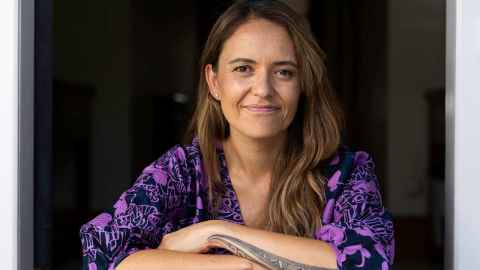Te reo Māori aids language acquisition
14 September 2022
Study of 6,000 children shows exposure te reo Māori enhances children’s language acquisition.

Fifty years on from the Māori Language Petition asking for active recognition of te reo Māori, research from the University of Auckland’s Growing Up in New Zealand study offers valuable insights into how Māori language is developing in children growing up in contemporary Aotearoa New Zealand.
The study has shown that children who learnt te reo Māori at school were more likely to score better on all vocabulary tests than those who had no instruction in te reo, suggesting that Māori language learning strategies in schools are working.
Growing up in New Zealand is this country's largest contemporary longitudinal study of child development and is tracking the lives of more than 6,000 children.
Research director of Growing Up in New Zealand and kaupapa Māori epidemiologist Dr Sarah-Jane Paine (Tūhoe) said asking whānau about access to and development of te reo Māori has been an important part of this study, which started during pregnancy. The children are now around 12 years old.
“We have been following children’s development from infancy and this study can help us understand what works to strengthen te reo language development and enable new research into how te reo development supports wellbeing across the life course. Access to language is a really important way of connecting to identity.”
The research explored the key factors which support the knowledge and use of te reo Māori.
For children who identified as Māori, access to learning environments such as Kōhanga Reo, Kura Kaupapa (full immersion education) had a significant impact on their learning, enhancing their te reo vocabulary skills.
At home, methods such as reading books, singing songs and playing games were extremely beneficial.
Mothers who reported understanding their Māoritanga, no matter the capacity, and who incorporated it into everyday life also encouraged te reo Māori use amongst children.
Professor Te Kani Kingi (Ngāti Pukeko, Ngāti Awa) from Te Whare Wānanga o Awanuiārangi is the Māori theme lead for Growing Up in New Zealand, with a specific interest in Māori development.
“The results from this data highlight the growing interest in te reo Māori amongst both Māori and non-Māori tamariki. With early data from Growing Up revealing that more than three-quarters of the cohort by the age of four-and-half-years old had some understanding of te reo Māori. An encouraging result which suggests that strategies to increase the use of the language are now beginning to take affect.”
Growing Up in New Zealand has developed a novel tool to better understand children’s understanding of te reo Māori. The vocabulary test included a wide range of words that were anticipated to have varying levels of difficulty for New Zealand children.
At eight years of age, children who were taught in te reo Māori on a somewhat regular basis scored better than those who usually don’t. Phrases like “ka pai” and words such as “kākāriki” and “kōwhai” were the most commonly understood at this age.
Media queries
Te Rina Triponel | Kaitohutohu Pāpāho Māori
M: 021 0299 0650
E: te.rina.triponel@auckland.ac.nz